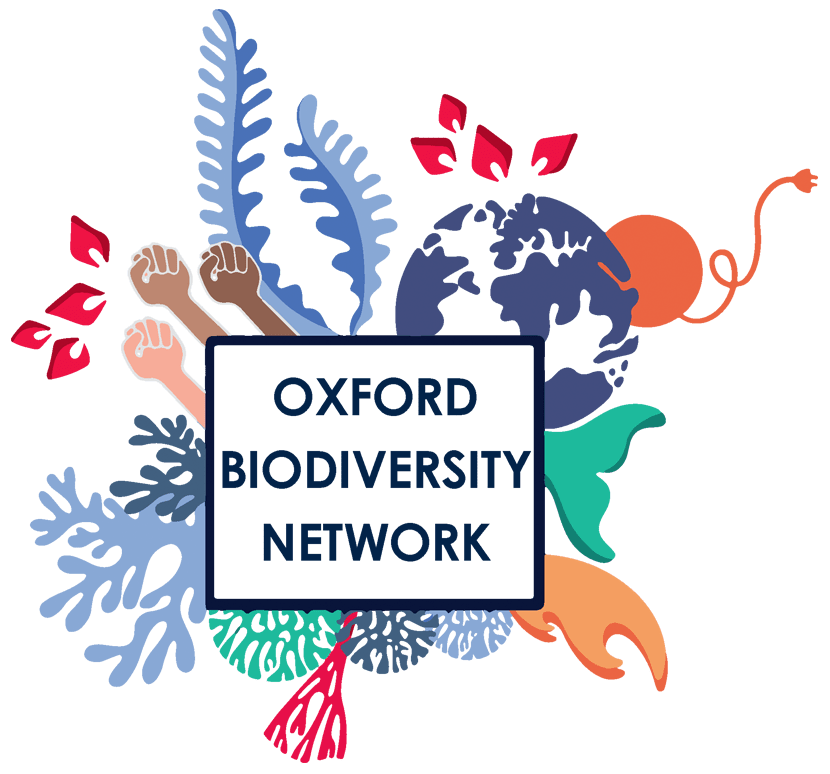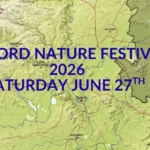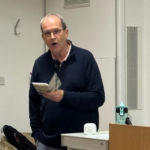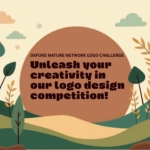Nature Network Coffee Mornings – Michaelmas Term
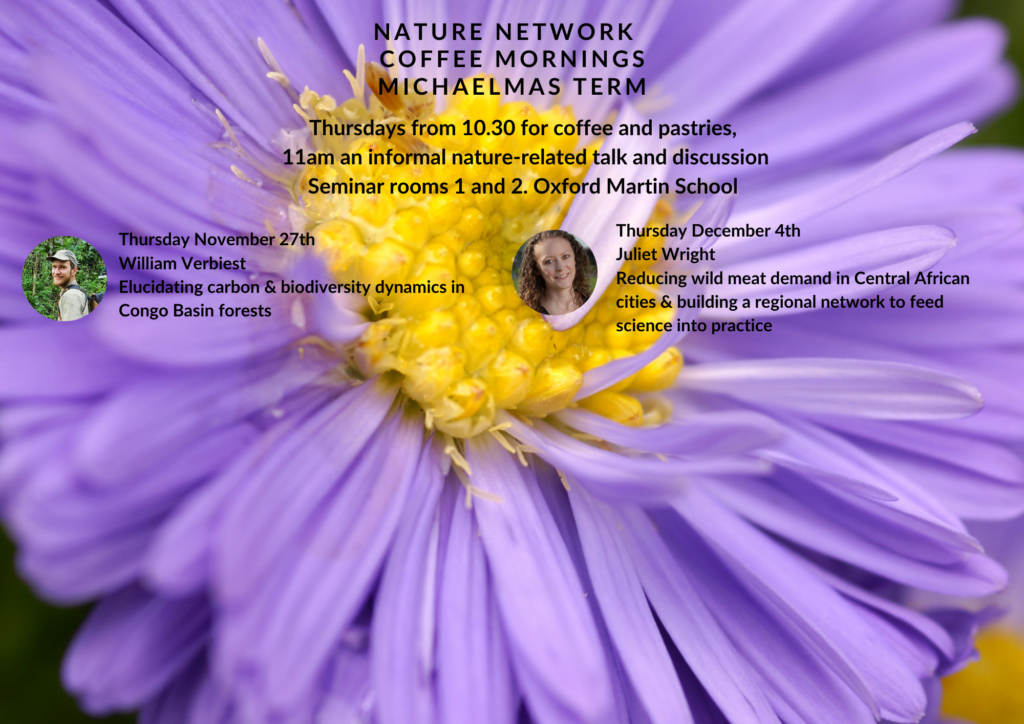
If you are a member of the University, or visitor you are welcome to join us on Thursday mornings in seminar rooms 1 and 2 in the Oxford Martin School.
We start 10.30am with coffee and pastries, and from 11am we host an informal talk from a member of the University about their research. If you would like to give a talk please drop us a line at biodiversity@ouce.ox.ac.uk
6th November – No session this week
13th November – Failure is data, not identity: experiences of win-lose-win in participatory mapping research in the Amazon – Aoife Bennett and Diana.
This talk will animatedly explore how our apparent “failure” in participatory mapping research has taken us on an extraordinary journey of professional and personal redemption, thanks to our resilience, continued dedication to working in the Indigenous territories of the Amazon. We will talk about how this experience has made us stronger academics and researchers. We hope to inspire you.
Rivers change their course, and there are destinations that sometimes cannot —or should not— be reached in certain ways or at certain times. Researchers are not machines, we are not static: we can adapt, overcome obstacles, and find solutions to “failure,” but at the same time, we can also be fragile. Our perceived “success” as professionals in environments such as research institutions should not change who we feel we are, make us be seen as less valuable than before, or lead to mistrust toward us in future work.
The world, and especially academia, spends a lot of time celebrating “success,” and that success is often narrowly defined and perceived, and easily reconsidered as failure when certain goals, results, or outputs are not achieved or produced. This is a toxic culture: it generates unnecessary fear instead of inspiration or a good plan B. Many of us work in difficult physical and other conditions, seeking solutions to the great problems of our world. Aoife and Diana are moving beyond that, hoping to inspire, give hope, and, in this talk, briefly show how they achieved this through their recent project.
20th November – Rebekka Louisa Drude Andersen. Arne Næss’ ecological philosophy: Ecosophy T
Introducing the Norwegian philosopher and climate activist, Arne Næss’ theory of Ecosophy T. The foundation and main concepts of identification, Self-realization and joy, and how this relates to sustainability.
27th November – William Verbiest: Elucidating carbon and biodiversity dynamics in Congo Basin forests
The Congo Basin forest — Earth’s second-largest rainforest — is a vital reservoir of global biodiversity and a key, yet understudied, component of the carbon cycle. My PhD research investigates how these forests store carbon and how their biodiversity is shifting under increasing human and climatic pressures. Using new long-term forest inventory data and detailed tree trait information, I assess the stability of the Congo Basin’s carbon sink and changes in forest composition over the past decade, providing novel insights into the resilience of these forests and their critical role in regulating Earth’s climate.
4th December – Juliet Wright – Reducing wild meat demand in Central African cities and building a regional network to feed science into practice
One of the main drivers of wildlife declines across Central Africa is the flow of wild meat to satisfy consumer demand in urban centres, yet few conservation projects have focused on understanding and addressing this demand. In collaboration with colleagues at the Wildlife Conservation Society, I conducted quantitative and qualitative research with urban wild meat consumers to feed into the development of a demand reduction campaign targeted at three socio-demographic groups in the megacity of Kinshasa, Democratic Republic of Congo. This large-scale multimedia campaign ran for three years over two phases and demonstrated through positive messaging that it is possible to buy and prepare delicious Congolese food without using wild meat. Our impact evaluation showed that people felt a lower degree of respect from eating wild meat following exposure to the campaign, but to result in sustained behaviour change, campaign messages must be disseminated over longer periods to maximise audience exposure and continue momentum. I will also introduce the newly formed Central Africa Bushmeat Research into Policy (CA-BRIP) network.
